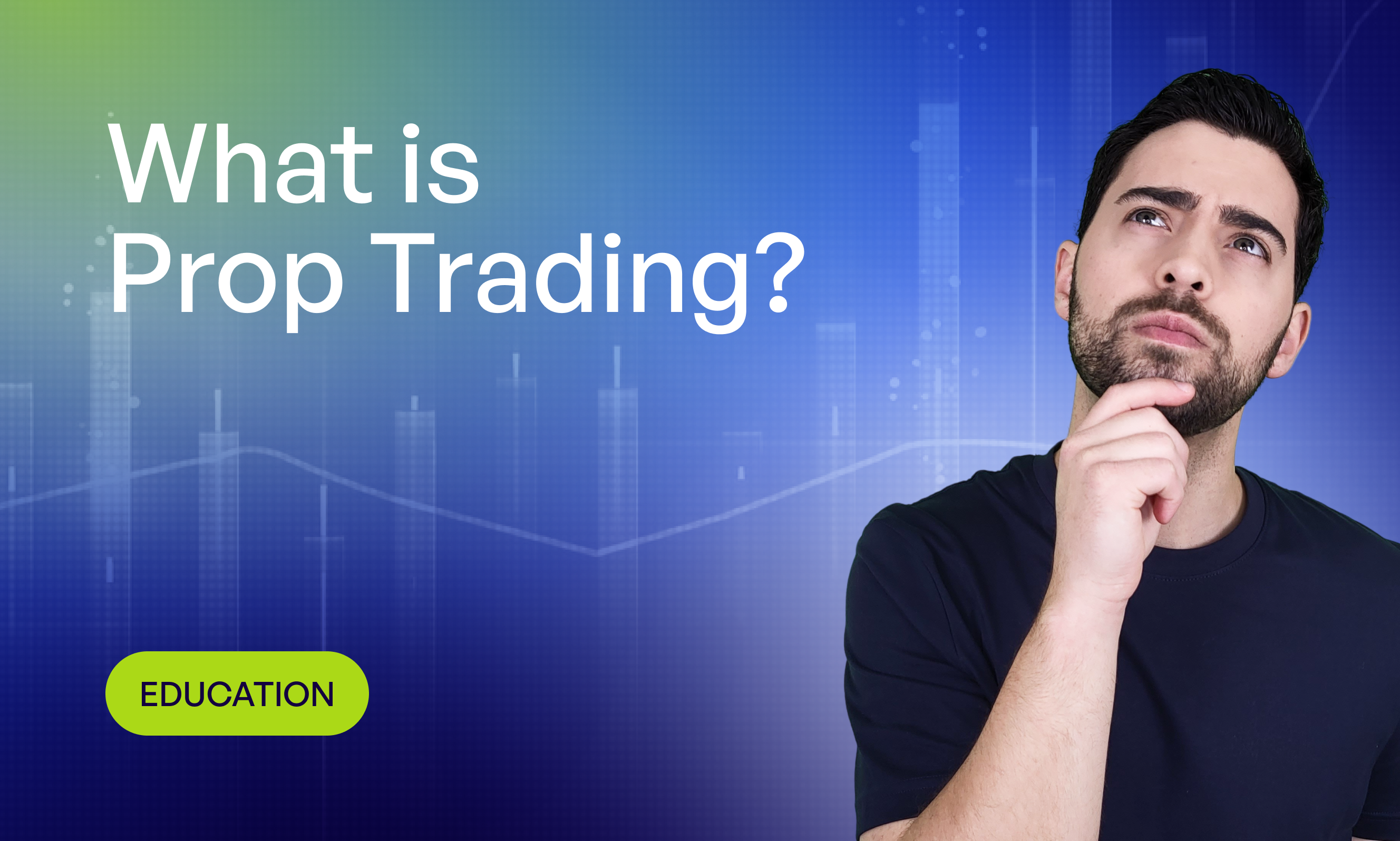
Prop Trading: 5 Most Common Questions and Answers
The proprietary trading model sparks a lot of interest and questions, especially in comparison to traditional trading with a CFD broker. The popularity of Prop Trading is steadily growing, particularly in Europe, where it remains a topic with many uncertainties.
Let’s go through the 5 most common questions about Prop Trading:
What sets prop trading apart from trading with a CFD broker?
The differences between prop trading and trading with a CFD broker are significant. A CFD broker primarily profits from spreads and commissions, offering a straightforward model. Your earnings are the returns from trades made with the funds deposited into your broker’s account, after subtracting the trading fees. However, challenges arise when your capital is limited, and you aim to increase profits. Many times, a genuinely effective trading strategy becomes ineffective due to slightly increased risk, leading to account bankruptcy. Trading with a CFD broker may be beneficial for those with substantial capital, where a few percent per month is satisfactory.
Alternatively, consider collaborating with a prop trading firm, which, for a fee, offers the opportunity to participate in a “Challenge.” Upon successful completion, you receive an account with significantly higher capital than invested during the Challenge. It’s worth mentioning that in prop trading firms, profit sharing typically follows an 80% for the trader and 20% for the prop trading firm. Prop trading allows trading with much larger amounts than the initial investment. Starting with just $500 and successfully completing the challenge, traders gain access to accounts with a significantly higher value, often starting at $100,000. With a 3-5% monthly profit target, this can result in earnings ranging from $4,200 to $7,000 after profit sharing. In contrast, trading with a traditional broker may yield only $30-50 per month.
Is prop trading safe?
Safety in prop trading depends on the investor’s skills, experience, and risk management abilities. Like any form of investment, prop trading carries the risk of capital loss. However, advanced technologies and data analysis tools can help minimize risks. Proper capital management strategies are also crucial.
Having a consistent investment plan can help maintain safety amid changing market conditions. Prop traders should develop an investment strategy covering goals, risk, capital management, and contingency scenarios. Having a specific plan acts as a pillar for making trading decisions even in the most stressful situations.
Is prop trading an option for everyone?
Prop trading is becoming increasingly accessible to a wider range of individuals. Lower entry costs and specially designed three-phase programs cater to those with limited capital but a strong interest in trading. However, it’s essential to keep in mind that success in prop trading requires dedication and continuous learning.
The introduction of technology to prop trading has made it more accessible but still requires a degree of commitment and understanding of financial markets.
How much can I earn in prop trading?
Average earnings in prop trading can vary significantly based on factors such as the trader’s experience, trading skills, available capital, risk in transactions, and terms offered by the prop trading firm. For experienced and successful traders, average monthly earnings can range from a few thousand to several thousand dollars.
However, for beginner traders and those starting their journey in prop trading, initial earnings may be lower as it takes time to learn and develop trading skills.
Is prop trading legal?
With the growing popularity of prop trading firms, questions about their legality often arise, especially in comparison to the longstanding presence and established position of CFD brokers in the market. The answer is clear: yes, prop trading firms operate fully within the law.
These modern enterprises are under strict regulation by relevant financial authorities, ensuring their activities comply with current regulations in the country where they operate. This regulation guarantees that the rules and procedures applied by these firms meet established industry standards, providing security for traders and their investments.
Additionally, prop trading firms distinguish themselves through a high level of transparency. They publish detailed regulations, precisely explaining trading rules, profit sharing, and potential risks. This transparency allows traders to thoroughly understand the terms and potential consequences of their investment decisions before entering into collaboration. This approach fosters trust-building and provides investors with a fuller picture of how prop trading firms operate, positively influencing their trading experiences.
Benefits of Prop Trading
Modern prop trading is a fascinating field but requires a conscious approach, skills, and continuous improvement. Financial safety largely depends on the investor’s knowledge, experience, and risk management skills.
The primary advantage of collaborating with a prop trading firm is access to significant investment funds. The financial resources of such firms usually far exceed the investment capabilities of individual traders, opening doors to executing more extensive transactions – thus offering the chance to achieve higher profits.











![10% Off For Traders Discount Code [2024]](https://fxprop.com/wp-content/uploads/2024/01/24.png)